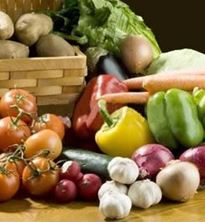
Remedies that can prevent an ictus
Pubblished bykageja
The second scientific studies, the daily commitment of tomato and raw garlic can prevent the cerebrovascular attack. There is other food that they are recommended by the experts also. According to a new study, a regime that includes such food, it reduces the probability to have an ictus. Those who use more tomatoes have less risk than to have an ictus of blood clots, since the moment when they are associated with high levels of licopene, a powerful ant oxidizer. According to the study, published on the magazine Neurology and led by researchers of the university of oriental Finland, Kuopio, people with high levels of licopene were 55 % within probability to undergo an ictus, a respect to those who use less tomatoes.
The search has involved 1.031 people that they were a part of a more ample study than it considers the risk factors for the cardiovascular development of diseases. These people, of age included between 42 and 61 they lived in and around it the city of Kuopio in Finland, when the study is begun at the beginning of 1990. Champions of blood were taken at the beginning of the study and successively after seven years. Moreover, his health was monitored for about 12 years.
What is the licopene? A plant pigment lip soluble which gives the red colour to tomatoes, watermelon and in smaller quantity in the other types of fruits and vegetables. It is in concentrations more raised in the by-products of the cooked tomato, for example, puree and sauces. Sal's cup, salty redhead that it understands tomatoes, garlic, aromatic herbs as the basil and the onion have more than 31.000 micrograms of licopene, while the raw tomato has more than 3.165 micrograms, as published by the Wall Street Newspaper with the information of the national Department of the agriculture of the United States. Besides: a slice of pizza a2.074 micrograms of licopene and a spoon of tomato sauce, 2.146.
Tomatoes are not the only one that it is associated with a smaller risk of ictus. As tells you, the list Huffington Post:
• Chocolate. According to a Swedish study, chocolate-brown food is associated with a smaller risk of ictus. The study has involved 37.103 people and it discovered that those who more chocolate-brown they ate in 10 years, they were 17 % within probability to have an ictus.
• Complete cereal. Eat a part of complete cereal can contribute to reduce the risk of ictus ischemic in women according to a study published on the Newspaper of American Medical Association. The women who ate more complete cereal had a lower risk, from 30 to 40%.
• Ac Citrus. An antioxidant found in citrus fruits can contribute to reduce the risk of ictus in the women, according to a study that it has involved 70.000 women and it was published on the magazine Stroke. The researchers of Harvard Médical School and Brigham and Women Hospital discovered that those who use the largest part of the flavonoid, a series of metabolite secondary sectors(high schools, Secondary) of plants, for a period of 14 years they had a lower risk of 19%.
• Fish. Food fish several times a week, it is associated with a smaller risk of ictus compared to those who not eat fish according to a study published on the magazine Stroke. The fish is good because it supplies a vast range of nutrients, in particular omega 3, that could justify the lower risk.
• The volunteers that they took 3 grams of fresh garlic every day, 2/3 teaspoon, for a period of 16 weeks they had a reduction of 20% of the cholesterol, the reduction of 80% of thrombosis, a factor in the blood which marks the increase of the risk of blood clots inside blood vases. Taking the fresh garlic help in the prevention of Ictus.
• A group of 87,000 male nursing have found that by using carrots, 5 or several times the week, it was reduced of 68% the risk of ictus compared to those who ate only once a month or not. The soft potato, pumpkin and other vegetables of intense yellow colour are recommended in this case.
• Another study showed that for every three parts of fruits and vegetables that the participants ate every day, the risk of ictus dropped to 22%.
Source: clarin.com e Agenzie

